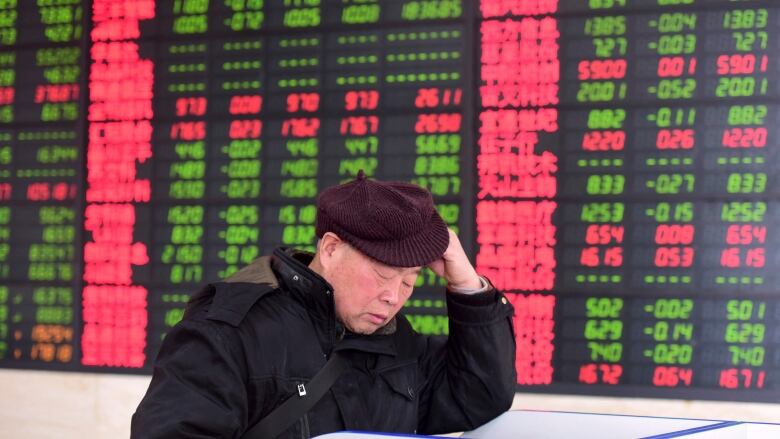Savaged stocks head for worst week since 2011
European major markets lower

A four per cent drop in Chinese shares dealt reeling world stock markets a fresh blow on Friday, as nerves about rising borrowing costs and soaring volatility put them on course for their worst week since the height of euro zone crisis.
European major bourseslost just over one per centbut China's overnight plunge had gouged at confidence again after the second 1,000 point loss of the week for the U.S. Dow Jones Industrial had sent it into official correction territory.
Capital flow figures also showed a record $30 billion US had already been yanked out of stocks during the rout, though even after that, Bank of America's closely followed "Bull & Bear" indicator was still flashing red and warning investors to sell.
"After the moves earlier this week market investor sentiment is fragile and because of this we aren't expecting the markets to immediately start moving higher once again," said J.P. Morgan Asset Management global market strategist Kerry Craig.
"But given that U.S. markets are now in correction territory - with a 10 per cent drop since the market peak in January - it's likely that the most severe gyrations will hopefully have passed," he said ahead of the start of trading on North American stock markets.
There was limited reaction as the U.S. government staggered into another shutdown after lawmakers failed to meet a funding deal deadline, but it did play into many of the overarching market concerns that have taken hold this month.
The yield on benchmark 10-year U.S. Treasuries, which tends to be the driver of global borrowing costs, was hovering at 2.793per cent, below both the Thursday peak and Monday's four-year high of 2.885 per cent.
Higher yields are seen hurting equities as they increase loan costs for companies and ultimately consumers. They also present an alternative to investors who may reallocate some funds to bonds from equities.
On top of pressure from the drop in global shares, Chinese equities had also been hurt by traders closing positions ahead of the Lunar New Year holidays which begin next week.
The Shanghai Composite Index had tumbled as much as six per cent to its lowest since May 2017, and the blue chip CSI300 index dived as 6.1 per cent.
Both indexes had pruned the losses to just over four per cent by the time they closed, but it was still their largest single-day losses since February 2016.
Japan's Nikkei had also shed 2.3 percent, en route to a weekly loss of 8.1 percent - its biggest since February 2016 too.
For MSCI's broadest index of world shares, the 47-country ACWI the slump was 6.2 per cent, which as long as it is still more than 6.1 per cent when U.S. markets close later will be the biggest loss since September 2011.
At that point markets where being slammed by worries about Greek debt default and a collapse of the euro zone. The Federal Reserve was also starting one of its mass bond buying programmes.
"The correction phase in equities could last through February and possibly into March," said Masahiro Ichikawa, senior strategist at Sumitomo Mitsui Asset Management in Tokyo.












_(720p).jpg)


 OFFICIAL HD MUSIC VIDEO.jpg)
.jpg)



























































































